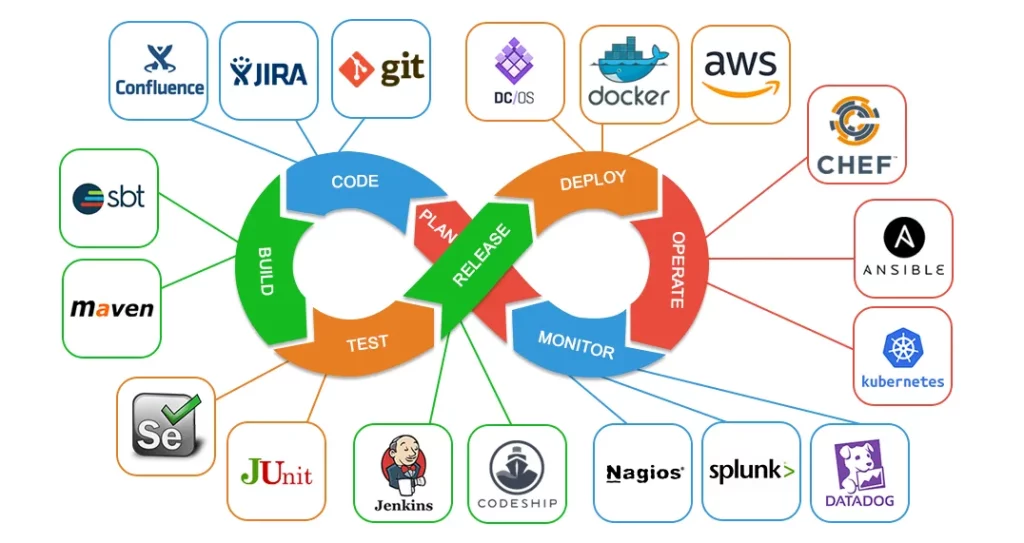Key directions of software consulting

Business Advantage
- Accelerated Feature Delivery: Expedite the delivery of new features and updates, enabling your business to stay ahead of the competition and meet customer demands faster.
- Stable Environments: Create stable and reliable software environments, reducing system failures and enhancing user experience.
- Resource Optimization: Free up valuable resources by automating repetitive tasks, allowing your team to focus on strategic business development initiatives.
Technical Advantages
- Seamless and Continuous Software Delivery: Streamline your software development process and achieve a seamless flow of code from development to deployment.
- Enhanced Release Planning: Plan and coordinate releases more effectively, ensuring smooth transitions and minimizing disruptions.
- Efficient Issue Resolution: Identify and address software issues promptly, ensuring quick resolutions and minimizing downtime.


Employee Productivity boost
- Improved Flexibility and Engagement: Foster a culture of flexibility and engagement, empowering your team to adapt to changes and collaborate more effectively.
- Streamlined Collaboration Workflows: Simplify and streamline collaboration between development, operations, and other teams, fostering efficient communication and alignment.
- Upskilling Opportunities: Provide opportunities for individual and team upskilling, empowering your staff to enhance their expertise and contribute to the organization’s success.
DevOps Automation in Action: Accelerating Software Delivery and Enhancing Operational Efficiency

01
Continuous Integration

02
Continuous Release & Deployment

03
Continuous Testing

04
Release Management

05
Continuous Monitoring
Our Portfolio of DevOps Services
Infrastructure Management:
We manage interactions between your cloud and on-premises environments, servers, storage, network, virtualization software, and more. Our experts ensure that your infrastructure is scalable, secure, and available.
Operational Management
We design, oversee, and control your cloud operational processes to ensure that your IT environment is operating at maximum efficiency. Our team of experts can help you improve your operational processes by identifying inefficiencies and implementing best practices.
Capacity Management
We ensure that your cloud resources are right-sized to serve business workloads in a cost-effective manner. Our experts monitor your infrastructure to identify and resolve capacity issues before they impact your business.
Capacity Management
We ensure that your cloud resources are right-sized to serve business workloads in a cost-effective manner. Our experts monitor your infrastructure to identify and resolve capacity issues before they impact your business.
Availability Management
We implement robust monitoring within event-driven management architecture to ensure that your infrastructure is available when you need it. Our experts monitor your infrastructure 24/7 to ensure maximum uptime and reliability.
Release Management
We increase the number of successful deployments through effective release management practices. Our experts work closely with your development and operations teams to ensure that code changes are deployed quickly and reliably.
Security Management
We manage inspections, security audits, and apply best security practices to ensure that your infrastructure is secure. Our experts help you identify and mitigate security risks to protect your business from threats.
24/7 DevOps Support:
We provide extensive 24/7 end-to-end support of your infrastructures, workloads, and operations. Our experts are always available to help you troubleshoot issues and ensure that your infrastructure is running smoothly.
Do you want your software investment to bring tangible results?



















